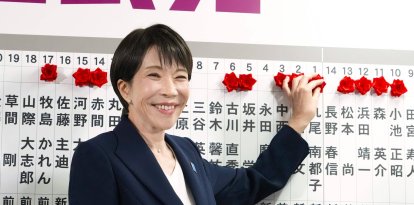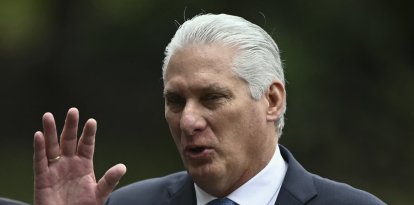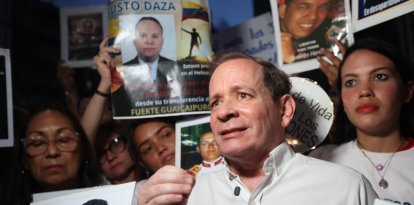Anti-government protests in Bangladesh leave at least 300 dead
The army chief announced Monday the resignation of Prime Minister Sheikh Hasina.

Image from the first days of protests in Dhaka, Bangladesh,
The death toll from clashes in Bangladesh has risen to at least 300 people, after 94 died Sunday in the bloodiest day of the weeks of anti-government protests, according to an AFP tally.
The figure is based on reports from police, authorities and doctors at hospitals. The protests are due to resume Monday amid widespread mobilization of police and soldiers in the capital Dhaka, road patrols and barricades on access roads to the office of prime minister Sheikh Hasina.
Deadly clashes were reported across the country on Sunday between opponents of the prime minister, law enforcement and supporters of the ruling party.
The 94 deaths are the highest number of casualties in a single day since the protest movement broke out in July in the Muslim country of 170 million people.
Influence peddling at the root of the conflict
The students reject the favors granted to those close to the government to obtain public jobs, in a context of high unemployment among professionals.
The rival sides clashed with clubs and knives, while the police fired live bullets. A police station in Enayetpour (northeast) was stormed and its 11 policemen were killed, authorities said.
The entire capital, Daca, became a "battlefield" and thousands of demonstrators set fire to vehicles and motorcycles near a hospital, another police source said in statements picked up by AFP.
Repeated gunfire and explosions were heard in the capital at nightfall as protesters defied the curfew.
The UN High Commissioner for Human Rights on Sunday urged "an end to the grisly violence in Bangladesh" and expressed concern that on Monday "the ruling party's youth movement will mobilize against protesters."
Earlier in the day, thousands of Bangladeshis gathered in a square in Dhaka to demand Hasina's resignation. They arrived summoned by the collective "Students Against Discrimination," which the day before called for civil disobedience. For his part, Obaidul Quader, secretary general of the ruling Awami League party, called on the population to gather in "all neighborhoods of Dhaka" and "all districts" of the country.
However, on Monday, the army chief announced the resignation of Prime Minister Sheikh Hasina. Sources close to the prime minister also reported Monday, according to AFP, that Sheikh Hasina left her residence in the capital for a "safer" place. She did so after thousands of anti-government protesters stormed his official residence on Monday.
Army, "on the side of the people"
The clashes are among the deadliest on record since Hasina came to power 15 years ago.
To restore order, her government cut Internet access, closed schools and universities, imposed a curfew and deployed the army.
For their part, former military officers have lent their support to the protesters. General Ikbal Karim Bhuiyan, a former army chief, and several other former military leaders called for the withdrawal of troops from the streets and stressed that people "are no longer afraid to sacrifice their lives."
In several cases, soldiers and police did not intervene against protesters, unlike in July.
"Those responsible for putting the people of this country in this state of such extreme misery should be brought to justice," Bhuiyan said.
The current army chief, General Waker-uz-Zaman, said in a statement Saturday that the military would "always stand by the people."

























